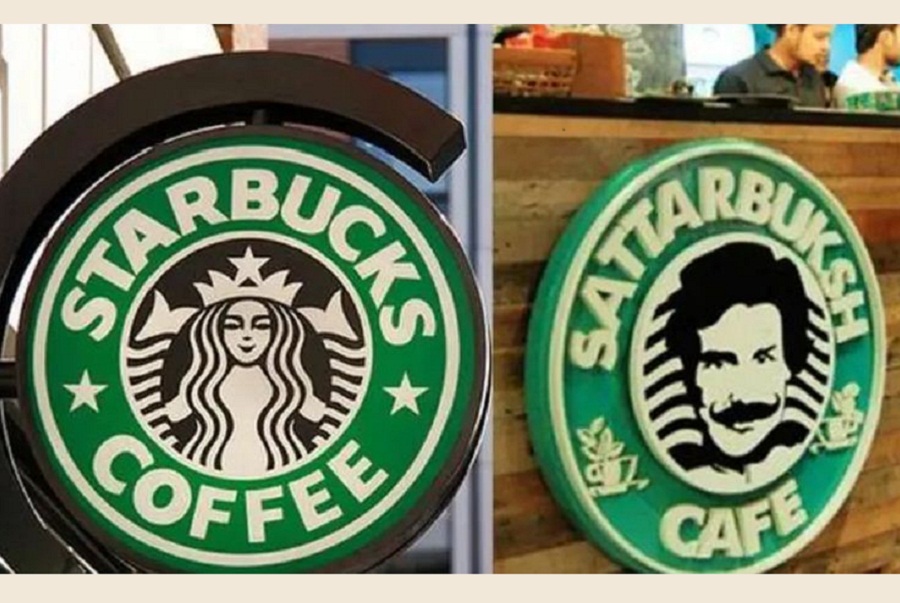
Published :
Updated :

In the corner of Karachi's bustling food strip, a small café called Sattar Buksh brewed more than coffee — it brewed a story. What began as a playful name and a moustached-man logo ended up in a long-running tussle with an international brand.
In the latest twist, Sattar Buksh has emerged with his neighbourhood dignity intact, and in doing so, reminded people that law, culture and a little humour can tilt a David-versus-Goliath fight.
The dispute started years ago, when the café's founders leaned into a joke: a name that echoed a familiar global chain and a circular green emblem that winked at the world-famous mermaid. It didn't take long for the image to travel online — part admiration, part satire, and part trouble. Starbucks objected, claiming the resemblance might dilute or confuse its trademark.
But Sattar Buksh's defence was as local as its menu. The owners argued the name was a rooted play on language, 'Sattar' being an everyday name and 'buksh' a common suffix, and that the logo was a culturally specific parody, not a copy aimed to deceive customers. They also pointed to clear visual differences: a moustached, desi silhouette in place of the mermaid, different fonts and regional touches across their branding.
Those distinctions, along with the tweaks the café made over time, helped the founders demonstrate they weren't trying to pass themselves off as the multinational.
Beyond legal technicalities, the case tapped into something larger: how global brands meet local creativity. For many locals, Sattar Buksh was more than a knockoff — it was a commentary, playful and proudly homegrown. The café's menu doubled down on that identity, serving local favourites alongside coffee, and leaning into truck-art aesthetics and tongue-in-cheek dish names. That cultural context mattered in the court of public opinion as much as in formal filings.
The outcome, reported widely in regional media, is being read as a narrow win for parody and local expression, not a blanket permission to copy famous marks. Observers say the decision shows how cultural meaning, consumer expectation, and minor design changes can combine to protect a tiny brand under local law while keeping the multinational's rights respected. It's a reminder that trademark law balances protection with free expression, and that context often matters as much as the logo itself.
For the owners of Sattar Buksh, the victory is practical and symbolic: they keep their name, their vibe, and a little extra fame. For the rest of us, it's a warm, human story — about two guys who opened a café, made people laugh, and ended up teaching a lesson about identity in a global marketplace. The court papers and headlines are part of the record; the café's crowded tables and the smiles of its regulars are the objective measures of success.


 For all latest news, follow The Financial Express Google News channel.
For all latest news, follow The Financial Express Google News channel.